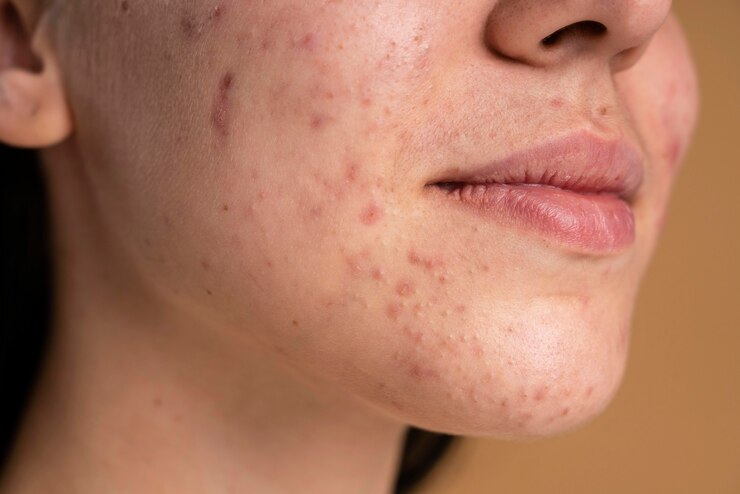Acne is often associated with the turbulent teenage years, but for many adults, the battle with breakouts continues into their 20s, 30s, and even beyond. Adult acne can be frustrating and impact self-esteem, but with the right strategies, it is manageable. Here are some effective ways to navigate and manage adult acne:
1. Understand the Causes:
Adult acne can result from a combination of factors, including hormonal fluctuations, genetics, stress, diet, and skincare habits. Understanding the specific triggers for your acne can help you tailor your management approach.
2. Adopt a Gentle Skincare Routine:
Choose skincare products that are gentle and suitable for your skin type. Avoid harsh, drying cleansers and opt for mild, fragrance-free options. Use non-comedogenic (non-pore-clogging) moisturizers to keep your skin hydrated without exacerbating acne.
3. Consistent Cleansing:
Cleanse your face twice a day, morning and night, to remove excess oil, dirt, and makeup. Be gentle with your skin, avoiding abrasive scrubbing that can irritate and worsen acne. Use lukewarm water and a mild cleanser.
4. Choose the Right Products:
Look for skincare products with active ingredients known to help manage acne, such as benzoyl peroxide, salicylic acid, or alpha hydroxy acids (AHAs). Introduce new products gradually to monitor your skin’s reaction, and consider patch testing before applying them to your entire face.
5. Moisturize Appropriately:
Even if you have oily or acne-prone skin, moisturizing is crucial. Opt for oil-free, non-comedogenic moisturizers to keep your skin hydrated without clogging pores. Well-hydrated skin is better equipped to fight off acne and heal more effectively.
6. Mind Your Diet:
While diet doesn’t cause acne for everyone, some individuals may find a connection between certain foods and breakouts. Experiment with your diet, and consider reducing intake of high-glycemic foods, dairy, and foods high in saturated fats, as they might contribute to acne in some individuals.
7. Manage Stress:
Stress can trigger hormonal changes that contribute to acne. Incorporate stress-management techniques such as meditation, yoga, deep breathing exercises, or hobbies into your routine to help keep stress levels in check.
8. Regular Exercise:
Physical activity promotes blood circulation and helps in eliminating toxins from the body. Wash your face after exercising to remove sweat and oil that may contribute to breakouts. Avoid wearing tight workout gear that can trap sweat against your skin.
9. Avoid Touching Your Face:
Refrain from touching your face throughout the day to prevent the transfer of bacteria and dirt from your hands to your skin. This includes avoiding picking, squeezing, or popping pimples, as it can lead to scarring and worsen inflammation.
10. Consult a Dermatologist:
If your adult acne persists or is severe, it’s advisable to consult a dermatologist. They can assess your skin condition, determine the underlying causes, and recommend personalized treatment options such as prescription medications, topical treatments, or professional procedures.
Managing adult acne requires a holistic approach that addresses skincare, lifestyle, and potential underlying causes. By adopting a gentle skincare routine, being mindful of diet and stress, and seeking professional guidance when needed, individuals can effectively manage adult acne and promote clearer, healthier skin. Remember, consistency is key, and with the right strategies, you can regain control over your skin and boost your confidence.








